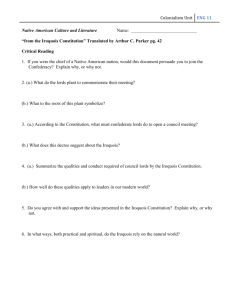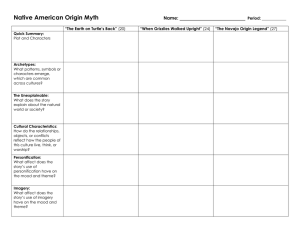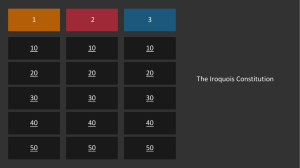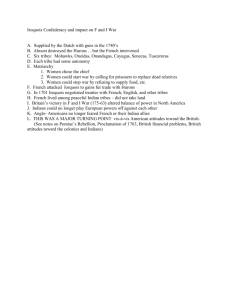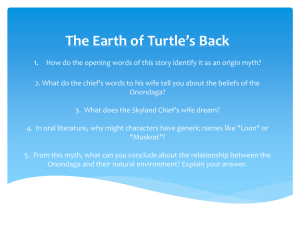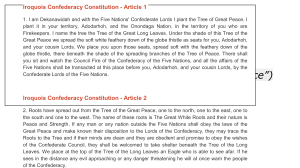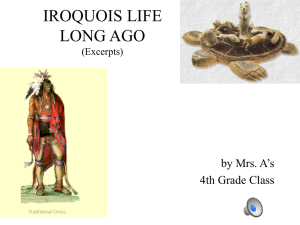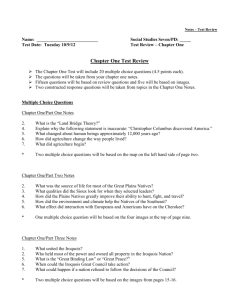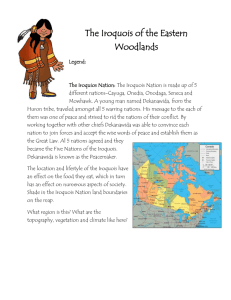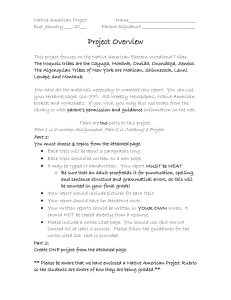Iroquois Constitution: Analysis & Activity Questions
advertisement
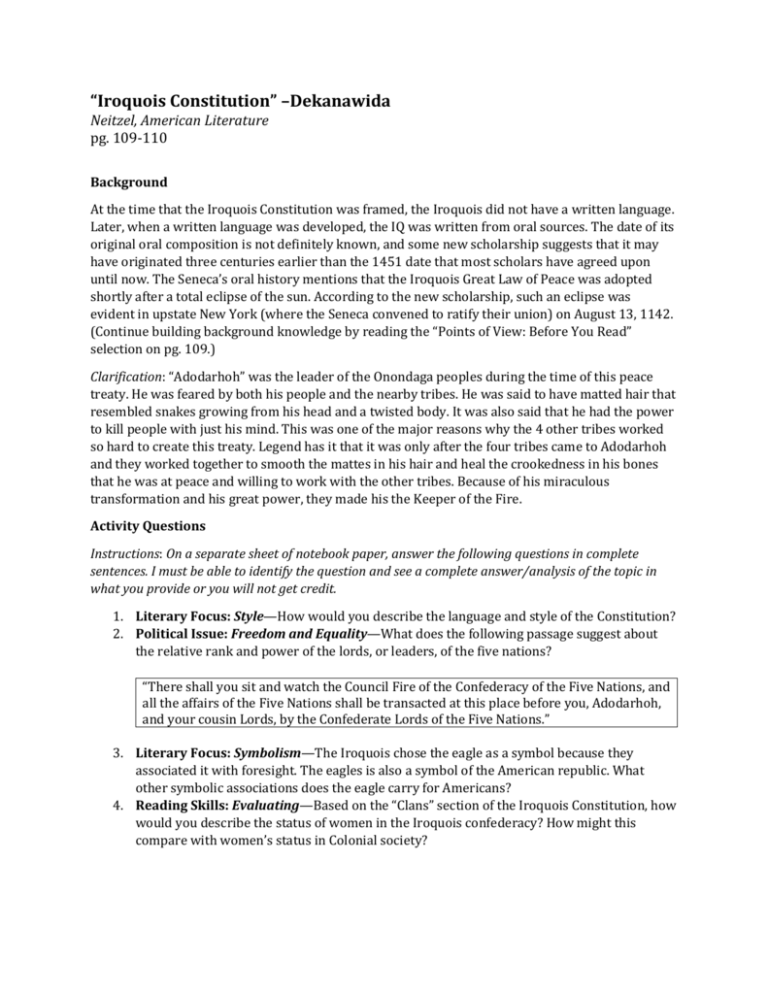
“Iroquois Constitution” –Dekanawida Neitzel, American Literature pg. 109-110 Background At the time that the Iroquois Constitution was framed, the Iroquois did not have a written language. Later, when a written language was developed, the IQ was written from oral sources. The date of its original oral composition is not definitely known, and some new scholarship suggests that it may have originated three centuries earlier than the 1451 date that most scholars have agreed upon until now. The Seneca’s oral history mentions that the Iroquois Great Law of Peace was adopted shortly after a total eclipse of the sun. According to the new scholarship, such an eclipse was evident in upstate New York (where the Seneca convened to ratify their union) on August 13, 1142. (Continue building background knowledge by reading the “Points of View: Before You Read” selection on pg. 109.) Clarification: “Adodarhoh” was the leader of the Onondaga peoples during the time of this peace treaty. He was feared by both his people and the nearby tribes. He was said to have matted hair that resembled snakes growing from his head and a twisted body. It was also said that he had the power to kill people with just his mind. This was one of the major reasons why the 4 other tribes worked so hard to create this treaty. Legend has it that it was only after the four tribes came to Adodarhoh and they worked together to smooth the mattes in his hair and heal the crookedness in his bones that he was at peace and willing to work with the other tribes. Because of his miraculous transformation and his great power, they made his the Keeper of the Fire. Activity Questions Instructions: On a separate sheet of notebook paper, answer the following questions in complete sentences. I must be able to identify the question and see a complete answer/analysis of the topic in what you provide or you will not get credit. 1. Literary Focus: Style—How would you describe the language and style of the Constitution? 2. Political Issue: Freedom and Equality—What does the following passage suggest about the relative rank and power of the lords, or leaders, of the five nations? “There shall you sit and watch the Council Fire of the Confederacy of the Five Nations, and all the affairs of the Five Nations shall be transacted at this place before you, Adodarhoh, and your cousin Lords, by the Confederate Lords of the Five Nations.” 3. Literary Focus: Symbolism—The Iroquois chose the eagle as a symbol because they associated it with foresight. The eagles is also a symbol of the American republic. What other symbolic associations does the eagle carry for Americans? 4. Reading Skills: Evaluating—Based on the “Clans” section of the Iroquois Constitution, how would you describe the status of women in the Iroquois confederacy? How might this compare with women’s status in Colonial society?

